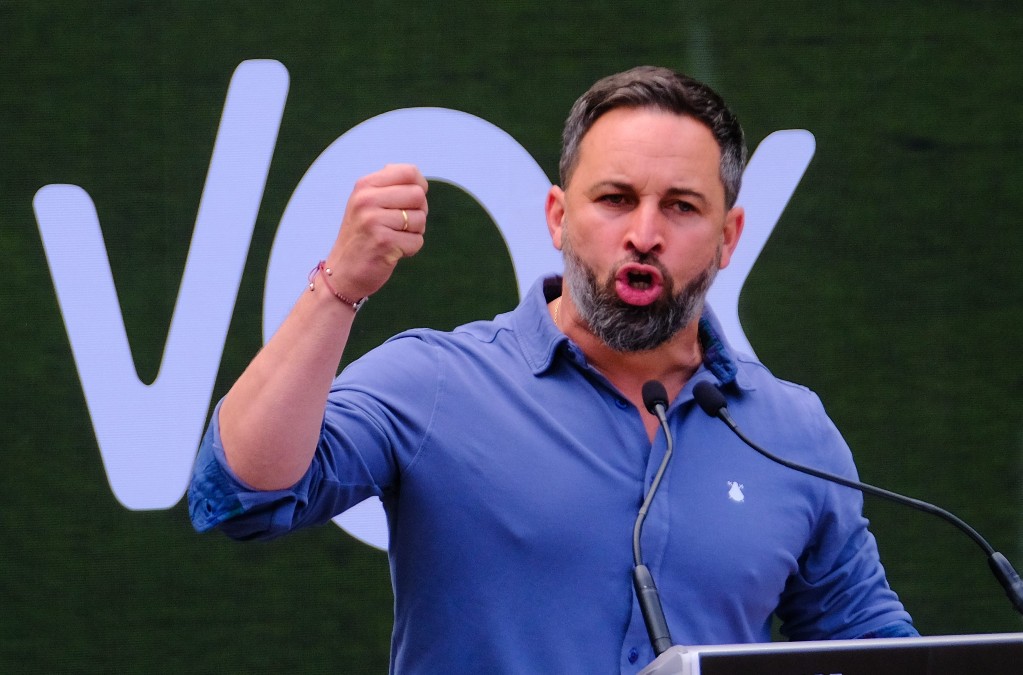THE LEADER of the far-right Vox party, Santiago Abascal, went on the attack on Sunday in the wake of his group’s poor showing at the Spanish general election. The politician oversaw the loss of 19 seats in the 350-seat Congress of Deputies at the polls, falling from 52 to 33.
Speaking late on Sunday night, and without taking questions from reporters, Abascal blamed the ‘disengagement’ of voters on the right on the approach of the Popular Party leader Alberto Nuñez Feijoo.
The polls had predicted that the PP and Vox would have enough seats for an absolute majority in Congress, but in the end the two groups fell well short of that goal. Vox remains the third-largest party in the lower house of parliament, after the PP and the Socialists.
Among the causes for the election loss, according to the far-right politician, was Feijoo’s decision not to take part in a televised debate last week as well as his announcement of how he would distribute Spain’s ministries among his politicians were he to win the election. He also accused Feijoo of having ‘whitewashed’ the Socialists during the campaign.
“I am seeing a lot of celebrations at the headquarters of other parties, it would appear that they have all won,” Abascal said.
He did, however, share some words of congratulations for the PP leader. “He has won the elections as he wanted to and what’s more he has done so without depending on Vox, as he also wanted,” he said from the party’s base in Madrid.
Abascal also railed at the media, which he said had ‘demonised’ his party and ‘manipulated’ the polls.
There was no self-criticism, meanwhile, despite the particularly poor result. Of note was the loss of support for Vox in the Castilla y León region, where Vox shed five of its six deputies. The government in that northern community of Spain is currently run by a PP-Vox coalition, and had been viewed by the far-right group as a model for a possible coalition on a national level.
It was far from clear on Monday morning as to what will happen now, with current Prime Minister Pedro Sanchez of the Socialist Party potentially able to cling on to power with the support not just of new leftist alliance Sumar but also smaller parties such as the pro-Catalan independence Junts pel Si (Together for Yes).
- Read more:
- Tensions rise on Spain’s campaign trail, as likely election winners PP and Vox become mired in controversies
- Record figures as Spain’s Correos mail service delivers over 2.6 million postal votes
- Police in Madrid arrest five men after they attacked a stand for far-right Vox











